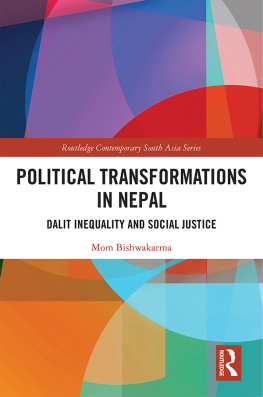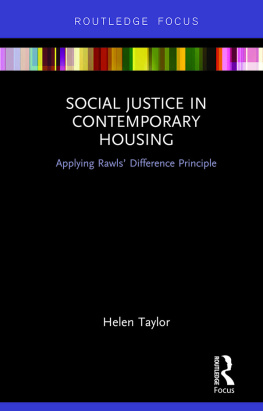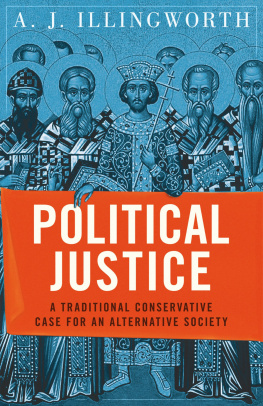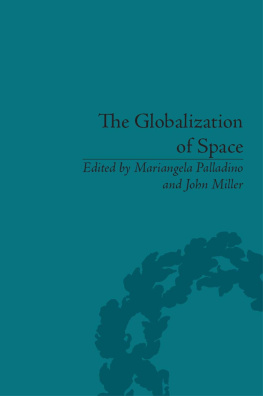Baillie Caroline - Heterotopia: Alternative Pathways to Social Justice
Here you can read online Baillie Caroline - Heterotopia: Alternative Pathways to Social Justice full text of the book (entire story) in english for free. Download pdf and epub, get meaning, cover and reviews about this ebook. City: Lanham, year: 2013;2012, publisher: John Hunt Publishing, genre: Politics. Description of the work, (preface) as well as reviews are available. Best literature library LitArk.com created for fans of good reading and offers a wide selection of genres:
Romance novel
Science fiction
Adventure
Detective
Science
History
Home and family
Prose
Art
Politics
Computer
Non-fiction
Religion
Business
Children
Humor
Choose a favorite category and find really read worthwhile books. Enjoy immersion in the world of imagination, feel the emotions of the characters or learn something new for yourself, make an fascinating discovery.

- Book:Heterotopia: Alternative Pathways to Social Justice
- Author:
- Publisher:John Hunt Publishing
- Genre:
- Year:2013;2012
- City:Lanham
- Rating:4 / 5
- Favourites:Add to favourites
- Your mark:
- 80
- 1
- 2
- 3
- 4
- 5
Heterotopia: Alternative Pathways to Social Justice: summary, description and annotation
We offer to read an annotation, description, summary or preface (depends on what the author of the book "Heterotopia: Alternative Pathways to Social Justice" wrote himself). If you haven't found the necessary information about the book — write in the comments, we will try to find it.
Heterotopia: Alternative Pathways to Social Justice — read online for free the complete book (whole text) full work
Below is the text of the book, divided by pages. System saving the place of the last page read, allows you to conveniently read the book "Heterotopia: Alternative Pathways to Social Justice" online for free, without having to search again every time where you left off. Put a bookmark, and you can go to the page where you finished reading at any time.
Font size:
Interval:
Bookmark:
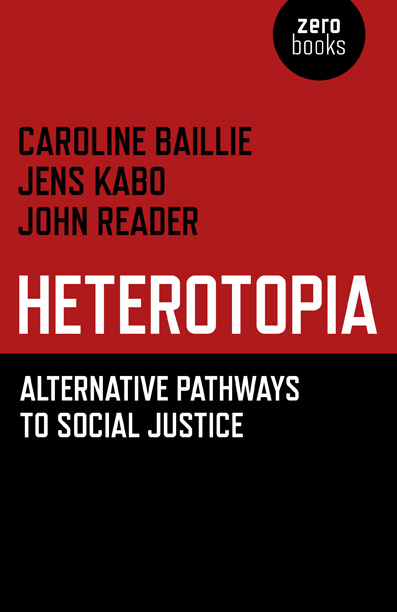

Winchester, UK
Washington, USA
First published by Zero Books, 2012
Zero Books is an imprint of John Hunt Publishing Ltd., Laurel House, Station Approach, Alresford, Hants, SO24 9JH, UK
www.johnhuntpublishing.com
www.zero-books.net
For distributor details and how to order please visit the Ordering section on our website.
Text copyright: Caroline Baillie, Jens Kabo and John Reader 2012
ISBN: 978 1 78099 228 0
All rights reserved. Except for brief quotations in critical articles or reviews, no part of this book may be reproduced in any manner without prior written permission from the publishers.
The rights of Caroline Baillie, Jens Kabo and John Reader as authors have been asserted in accordance with the Copyright, Designs and Patents Act 1988.
A CIP catalogue record for this book is available from the British Library.
Design: Stuart Davies
Printed and bound by CPI Group (UK) Ltd, Croydon, CR0 4YY
We operate a distinctive and ethical publishing philosophy in all areas of our business, from our global network of authors to production and worldwide distribution.
CONTENTS
Crossing the Threshold: A Journey into New Ways of Thinking
Critique of Established Positions
Thoughts Collectives and Common Sense
Theories, Models and Metaphors of Change and Action
Engineering: Liminal Spaces and Heterotopia
Final Thoughts
This book is about transformations. Particularly the sort of trans- formations that many would like to see happen in our profession, school, community and country. Transformations that lead to shifts in ways of thinking and being, about who we are, what we do and why we do it. Many of us are disillusioned with contemporary society and how the economic drivers and dominant discourse lead us all to selfish, point-gaining behav- iours. As we write this text, increasing numbers of riots, revolu- tions and peaceful protests are appearing on the global scene.
Occupy Wall Street has led to a number of other peaceful demonstrations against financial centres of major cities, which show that many members of our societies are discontented with the greed that they see in contemporary neoliberalism and are prepared to risk arrest and disruption to their lives to say so. The competitive behaviours they protest about act against community and a sense of social justice and leave us empty, bereft of direction, running in different directions at the behest of someone, but we have almost forgotten who and definitely, why. We attempt, in this short manuscript, to explore possible trans- formations to alternative ways of being, using a multitude of disciplinary traditions and experiences from different walks of life. We hope that it will be useful in provoking the development of a consciousness about transformation, which transcends disci- plinary and professional boundaries and in starting a conver- sation, which will allow us to converse with each other about the changes we would like to see and how to help these happen.
What we aim to do with this text is to help find ways ofdeconstructing current issues and contexts and in reconstructing alternatives, which move in more just ways. We do so, by drawing on many different disciplinary traditions as well as by using very different examples of 1) a profession, using the particular case of engineering, a practice done by highly trained workers entrusted with building services, products and systems for different parts of society, and; 2) a local community touched by, but with no power over, these professional worlds.
In our exploration of transformations to new alternatives, we began by drawing on one particular education theory, known as the threshold concepts framework, which is concerned with the transition from one relatively stable state of knowing or being to another. Erik Meyer and Ray Land who originated the idea, use the terms liminality or liminal space to describe this transition. The term comes from the Latin limen meaning passage or threshold. Liminality is a space of uncertainty and flux which different learners will navigate in different ways and with different success, some might for example get stuck, unable to move forward, while others will oscillate back and forth between different states of knowing and being. However, the kinds of transitions we are considering are not linear, not the learning of simple isolated concepts, they are messy, abstract transforma- tions. The space, which describes the learning journey we speak of, as well as its destination, is more like a heterotopia. Heterotopias are places and spaces, described by Michel Foucault in the text Of Other spaces as non-hegemonic. The place where Occupy Wall Street has been happening is an example of a heterotopia: a place where alternatives are considered, common sense is questioned and business as usual stops for a moment.
Hegemony, the term coined by Gramsci, will be explored in more detail in the text but for newcomers, suffice to say that it refers to the dominant ways of thinking, propagated, reinforced and made common sense by those in power in society. In this book, we invite people into this very liminal, heterotopian space so that they might rest a while and make decisions about what to do next, without being bombarded by what others seem to think are common sense ways of being and thinking but which we think are madness.
In their discussion of liminality, Meyer and Land differentiate between different liminal states which is something we will expand upon in the text. One aspect of Meyer and Lands discussion is subliminal variation, which they conceptualise as variation in predisposition toward knowledge building in a disciplinary knowledge area or awareness of the underlying game that structures or informs a discipline. This subliminal variation will influence how learners can and will negotiate different states of liminality and thus give rise to further variation. For the purposes of this book we can interpret this subliminality in a broader sense as a persons predisposition toward engaging with the road to heterotopia. This is a way to make sense of some of our examples of certain books we picked up or people we met who resonated with our selves greatly, despite the sometime randomness of the first encounter. After all most of us (most people) have picked up books or met new people by chance, but (potentially) it is our states of sublimi- nality that influences how we engage them. Jack Mezirow, a founding figure regarding transformative learning theory, most likely would connect this to different habits of mind that influence our frames of reference and points of view. One key point of this book then is that when we become aware of (aspects of ) our own subliminal predispositions we increase our possibil- ities to act and further transform our subliminality and selves. This is reflected in how we (in addition to chance meetings with texts and people) also consciously seek out certain new texts or people who might help us grow or continue to develop as individuals and part of communities.
In 1964 Marshall McLuhan told us that the media is the message. In other words, he was claiming that the manner of doing things is itself integral to the content being expressed. In this book, the subject matter will be presented in a manner consistent with the ideas being described. This may sound simple, but it creates challenges for both authors and readers. This introduction will lay out the contours of the discussion and the range of material to be encountered. We will do so in part by each author speaking from their own positions and experiences ( John, Caroline, Jens) where these are different from each other.
Font size:
Interval:
Bookmark:
Similar books «Heterotopia: Alternative Pathways to Social Justice»
Look at similar books to Heterotopia: Alternative Pathways to Social Justice. We have selected literature similar in name and meaning in the hope of providing readers with more options to find new, interesting, not yet read works.
Discussion, reviews of the book Heterotopia: Alternative Pathways to Social Justice and just readers' own opinions. Leave your comments, write what you think about the work, its meaning or the main characters. Specify what exactly you liked and what you didn't like, and why you think so.

